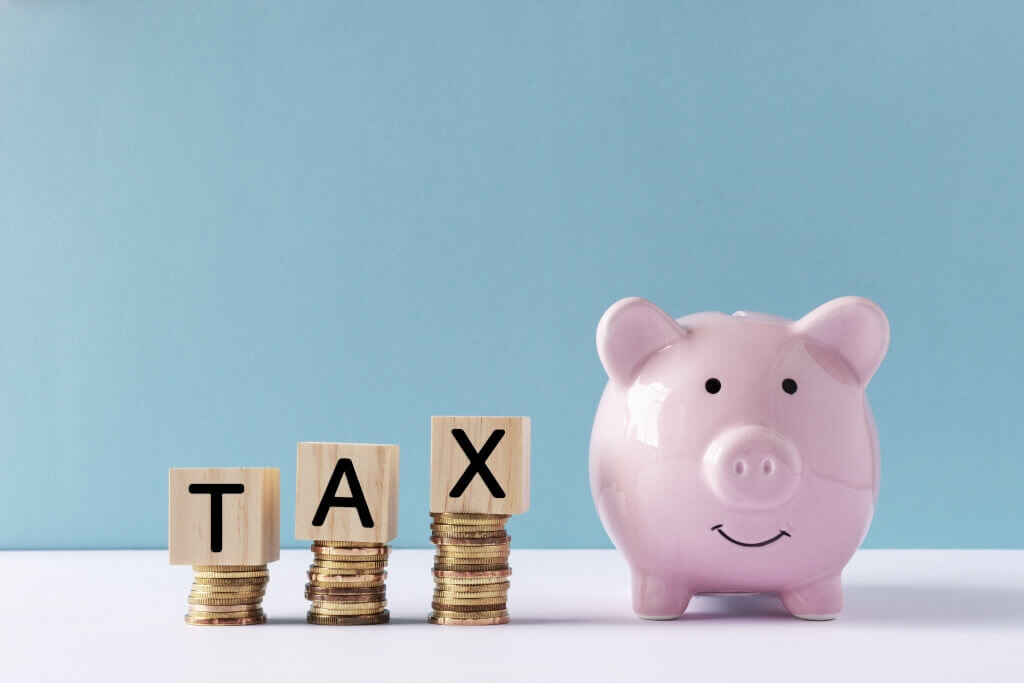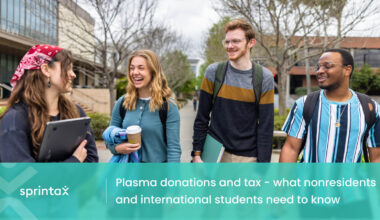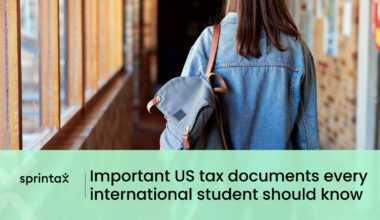As a nonresident in the US, you probably have a lot of questions about tax.
That’s why, at Sprintax, we offer a 24/7 Live Chat service. Our team are available any time day or night to support you and answer all of your tax questions.
In this blog, we’ve compiled some of the most common tax questions that our team have received recently.
Recent questions about nonresident taxes
Q. I have a US tax liability for the 2019 tax year. I can’t afford to pay it by 15 April. What should I do?
Due to the COVID-19 pandemic, the IRS has extended the federal tax filing deadline from 15 April to 15 July 2020. The federal tax payment deadline has also been extended to 15 July. Meanwhile, most states have also extended their filing and payment deadlines to 15 July. There are some exceptions:
State Extended deadline
Hawaii 20 July
Idaho 15 June
Iowa 31 July
Virginia 1 June
If you need to defer your tax payment beyond the 15 July deadline, you can file a federal extension until 15 October 2020.
It’s important to note that the IRS applies late payment and filing penalties if you don’t file by the deadline. The penalties and interest are based on each different case and how many days have passed the due date.

Q. I have heard the tax filing deadline has been extended. When is the last day that I can file my return?
This depends on your personal circumstances and the state in which you lived and worked or studied.As we mentioned above, the federal tax filing deadline has been extended to 15 July. And most state filing deadlines have also been extended to 15 July. However, if you have a state filing requirement in Idaho (deadline- 15 June), Iowa (31 July) or Virginia (1 June) you will have to file your documents before the deadline.
Meanwhile, if you lived in Hawaii, you have until 20 July to file your state return.
Remember, it’s very important to comply with your tax filing obligations.
By not filing your documents, you can jeopardize your future visa or green card applications.
You can also be hit with fines and penalties.
Find out more about the tax deadline extension here.
Q. I received a $100 dollar bonus when I opened my US bank account. Do I have to pay tax on this money?
Many banks in the US offer incentives to encourage you to open a bank account. The incentives are often very enticing too and typically you will be offered $100 – $500 as a new account bonus when you shop around.
In short, if you receive a bank bonus you have a tax filing requirement.
If the bonus is over $600, the bank is required to report it on a 1099-Misc as an ‘award’.
If it is less than $600, you will be required to report it as ‘other income’ on your tax return.
Finally, ‘cash back’ bonuses or any bonuses that require the customer to spend money as a condition in order to receive it are non-taxable and non-reportable.
Q. In 2019 I attended a university in Florida as a nonresident student. I also worked on campus as a Resident Assistant. One of the perks of the role was that I received on-campus accommodation rent-free. Do I have a tax filing requirement?
The position of Resident Assistant (RA) is common in campuses across the US.RAs are student leaders who are trained to create welcoming residential environments for fellow students on campus.
To compensate them for their work, many RAs receive a monthly stipend and complimentary accommodation on campus.
If your accommodation is paid for by your university to compensate you for your RA role you will have a tax filing requirement.
If your accommodation is paid for as a part of a grant or scholarship and no personal services are expected to be performed, the income should be reported on a 1042-S form (‘standard income code 16’).
However, if the payment is provided and there is a requirement to deliver services as a part of the contract (as is likely if you are working as an RA), this income should be reported either on a W-2 form or on a 1042-S (it will be considered income code 18’ or ‘income code 20’ if you are a student on an F or J visa).
How coronavirus affects your US tax requirements
Below you will find some of the questions we have received following the outbreak of COVID-19.
Q. I’m an Indian student attending a New York University as a nonresident scholar. I also teach a class at the university. Due to COVID-19 I am currently teaching my class online from my home in India. Do I have a US tax filing requirement for the teaching income I earn while in India?
Typically, if you earn US sourced income you will have a US tax filing requirement. Your income will be defined as ‘US sourced’ if:
- the property that produces the income is located in the US
- the services for which the income is paid were performed in the US
- or the income is a dividend equivalent
If you are not a resident of the US and you are earning income from teaching a class for a US university while you are outside the US (such as your home in India) this income will be treated as foreign income and is not reportable and not taxable in the US.
Similarly, if you are doing research or writing your thesis while outside the US, the grant you receive to cover your expenses while you work, will be treated as foreign income and is not reportable or taxable in the US.
It’s important to note that each individual situation is different and you may need a consultation to determine if your income is considered foreign or from US source. Talk with our Live Chat team today!

Q. I am a Chinese student attending an Ohio university as a nonresident student. Before the coronavirus outbreak, I had been working on campus and earning an income. Fortunately, I am able to continue this employment while working from home in China. Do I have to pay US tax on the income I earn while working from home in China?
As we mentioned above, your income will be defined as ‘US sourced’ if the property that produces the income is located in the US.When carrying out your work from your home in China, if you are using a software or platform which is installed on a server in the US, the property that produces the income is likely to be considered to be located in the US. Therefore, the income that you earn will be taxable in the US.
In other words, you will have the same tax filing and payment obligations as you would if you had earned the income while working on campus.
What’s more, if the payment is provided for a work that you do would normally be performed in the US (for example, after the COVID-19 crisis is over), the income earned is taxable in the US.
Q. I am receiving a scholarship to attend a college in California as a nonresident student. Due to COVID-19 I can no longer attend classes in person. Instead I am attending the classes online from my home country of Brazil! Do I have to pay US tax on my scholarship?
Scholarships, fellowship grants, targeted grants, and achievement awards received by nonresident aliens for activities performed outside the US are not considered US source income. However, your school must determine if the activity for which they pay the grant is performed outside the US.
Some important points to consider:
- If the stipend is granted for tuition it will be treated as foreign income and it is non-reportable and non-taxable
- If you received travel and living expenses which were intended for you to spend in the US, this income will be considered taxable scholarship in the US
- Finally, if the stipend you received was paid to cover expenses while you are studying outside the US, the income may be considered foreign income and is non-taxable and non-reportable in the US
It’s important to note that each individual situation is different and you may need a consultation to determine if your income is considered foreign or from US source. Talk with our Live Chat team today!

Q. I am a nonresident alien in the US, can I avail of the CARES Act?
The Coronavirus Aid, Relief and Economic Security Act (CARES) was introduced by the US government in order to support workers who have lost their job due to the pandemic.Under the Act, many single individuals who earn less than $75,000 can expect to receive a one-time payment of $1,200. Meanwhile married couples who file jointly and earn less than $150,000 will receive a check worth $2,400. Families will also receive $500 per child.
Payments begin to phase out at $75,000 for single individuals ($150,000 for joint taxpayers) and phase out entirely at $99,000 ($198,000 for joint taxpayers).
It’s important to note that these are considered one time payments and are not taxable income for recipients because the rebate is a credit against tax liability and is refundable for taxpayers with no tax liability to offset.
In order to claim CARES, each taxpayer must also have a social security number.
Q. Are nonresident aliens entitled to avail of the CARES Act?
In short, no, nonresident aliens are not eligible to receive this payment. It is available for American taxpayers and resident aliens only.
You are considered to be a resident alien for tax purposes if you meet either the green card test or the substantial presence test.
The Green Card test
You are a resident alien if you have US permanent or conditional residence (a green card). This means that you are a citizen of another country but are authorized to live and work in the US on a permanent basis.
The Substantial Presence Test
Even if you do not have a green card, if you spend 31 days in the United States during the current year and 183 days during the three-year period that includes the current year and the two years immediately before that, you are considered a resident alien.
This can include many people who are in the United States on temporary non-immigrant visa types.
However, there are exemptions for time spent in transit (less than 24 hours in the US), time during which the person could not leave because he or she required medical treatment, as well as for teachers and students (on F, J, M, or Q visas) who haven’t stayed in the US beyond a certain period of time.
If you do not meet either of these tests, then you are likely a nonresident alien and you will not be eligible for this payment.
In summary, if you are a resident alien, have a social security number, and earn less than $75,000 as a single individual (or less than $150,000 married filing jointly) you can expect to avail of CARES.
For more information, check out our full guide to CARES Act Stimulus Payments and how it affects nonresidents.
Got questions about US tax?
Get in touch with our Live Chat team anytime 24/7. They will be happy to assist you!








